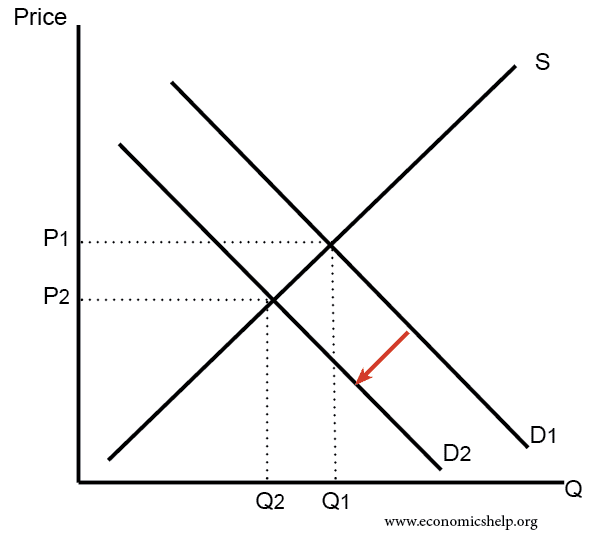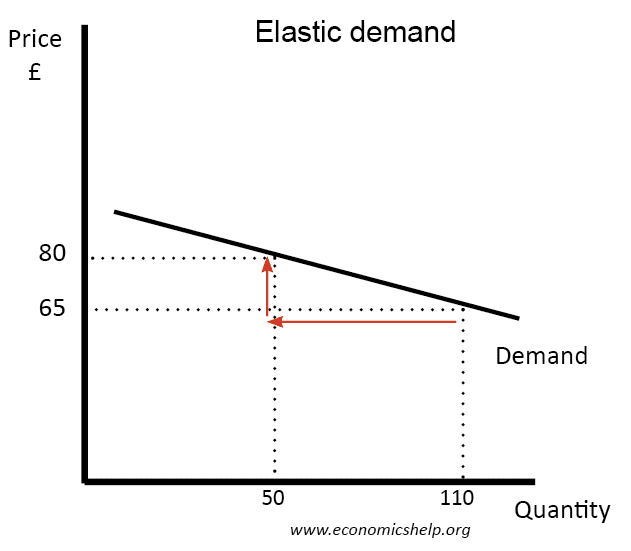How does a recession/economic downturn influence how firms will set the price of goods and services?
A recession is a period of negative economic growth – falling real incomes and rising unemployment. In a recession, consumers are likely to have lower income and be more sensitive to prices. There is also the threat of unemployment which will make consumers more reluctant to spend.
In an economic downturn, firms are likely to see a fall in demand and unsold goods. This creates an incentive to cut prices.

- Firstly the fall in demand puts downward pressure on prices.

- Secondly in a recession, demand is likely to become more price elastic (more sensitive to changes in price). Therefore, a firm may be able to increase revenue by cutting price. In a recession, a cut in price may have bigger percentage increase in demand than in normal circumstances.

Thirdly, in a recession, firms are more likely to experience cash-flow problems and risk going out of business. With unsold stock and liquidity problems, there is a clear incentive to offer big discounts to bring in revenue and help survive the economic downturn.
Evaluation
- The effect of pricing strategies will depend on the type of good. In a recession, firms may see an increase in demand for inferior goods (negative income elasticity of demand – e.g. Tesco Value Bread). Some firms like £1 shops may actually see greater demand so there is no necessity to cut price because demand is rising or at least constant.
- However, for luxury goods, firms will see a significant fall in demand. During a recession, it is big priced items like furniture and TVs, that consumers can easily delay purchasing. These firms will see the greatest pressure on demand and profitability. Therefore, it is likely firms will respond by having big price cuts to try and maintain cash-flow and sell any unsold stock.
- In a recession, demand may become more price elastic – due to greater price sensitivity. However, individual firms may still see inelastic demand because they are in competitive markets. In a recession, demand for TVs in general will become more price sensitive. However, if one firm starts a price war, it is likely to cause all firms to cut price too. Therefore, even if a firm cuts price for a particular brand of TV the increase in demand may be relatively low because they are in a cut-price competitive market. This is good for consumers who see falling prices, but individual firms may get lower prices but only a very limited increase in demand. This may encourage firms to try and avoid price wars if they can.
- Inertia in changing prices. During a recession, firms may just keep prices fairly stable. There are costs and uncertainties involved in changing price. Rather than risk a price war, the firm may seek forms of non-price competition, e.g. offering loyalty cards, better after-sales service.
- Supply-side recession. Sometimes recessions are caused by supply-side factors, such as an increase in oil prices, higher costs of production. Therefore, in a recession, we can see cost-push inflation as well as falling demand. Therefore, firms may actually have to increase prices to reflect the higher costs of raw materials.
Related
